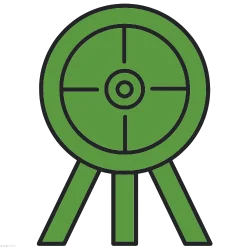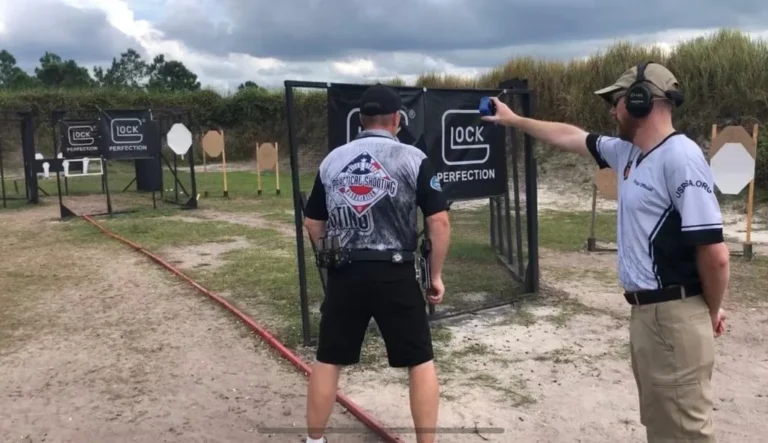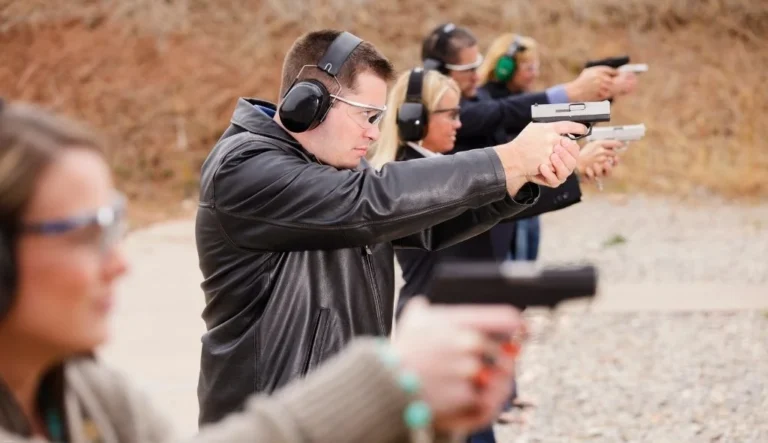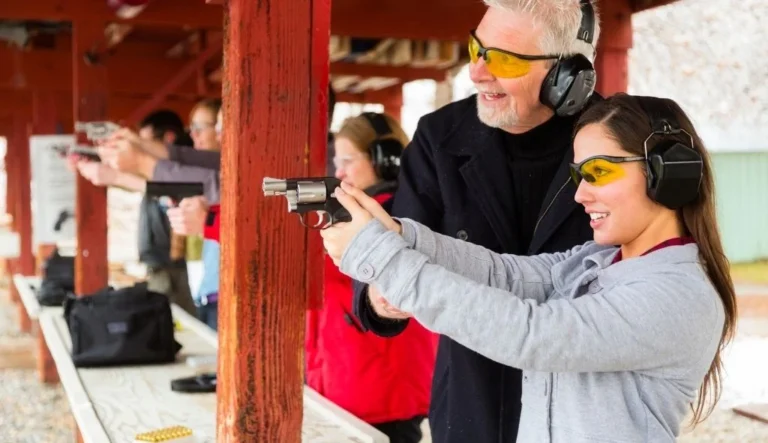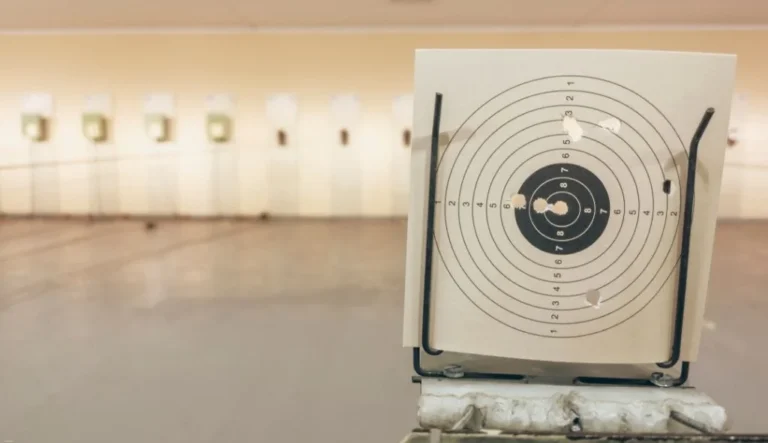Pregnant women should generally avoid going to shooting ranges due to potential risks from lead exposure and loud noises. However, if necessary, outdoor ranges with proper precautions may be safer options. Consult your doctor before making a decision.
Understanding the Risks of Shooting While Pregnant
Shooting while pregnant presents unique challenges and potential risks that expectant mothers need to consider carefully. The two primary concerns are lead exposure and noise levels, both of which can have negative impacts on fetal development.
Lead Exposure
Lead exposure is a significant concern for pregnant women at shooting ranges. When a firearm is discharged, it releases lead particles into the air, which can be inhaled or absorbed through the skin. The Centers for Disease Control and Prevention (CDC) states that lead can transfer from a pregnant woman to her unborn baby.
Lead exposure during pregnancy can lead to several complications:
- Increased risk of miscarriage
- Premature birth
- Damage to the fetus’s brain, kidneys, and nervous system
- Potential learning or behavioral problems in the child’s future
The CDC has not determined a “safe” level of lead exposure for pregnant women and fetuses, making it crucial to minimize contact with lead as much as possible during pregnancy.
Noise Levels
The second major concern is the high noise levels associated with firearms. A fetus begins to respond to sounds at around 16 weeks of gestation, and their ears are fully structured by 24 weeks. Exposure to loud noises during pregnancy can potentially harm the developing auditory system of the fetus.
A single gunshot can produce noise levels of around 140 decibels (dB), which is well above the safe threshold for hearing protection. Prolonged or repeated exposure to such high noise levels may lead to:
- Hearing loss in the fetus
- Decreased birth weight
- Increased risk of premature birth
Safety Measures for Pregnant Shooters
If you decide to continue shooting while pregnant, it’s crucial to take extra precautions to minimize risks. Here are some safety measures to consider:
Choose Outdoor Ranges
Outdoor shooting ranges are generally considered safer for pregnant women compared to indoor ranges. The open-air environment allows for better ventilation, reducing the concentration of lead particles in the air. Organizations like A Girl and A Gun shooting leagues actually prohibit pregnant members from participating in events held indoors, even in well-ventilated, state-of-the-art facilities.
Use Lead-Free Ammunition
Opting for lead-free ammunition can significantly reduce the risk of lead exposure. Many manufacturers now produce lead-free options that perform similarly to traditional lead-based ammunition.
Wear Protective Gear
Proper protective gear is essential when shooting while pregnant:
- Use a high-quality respirator to filter out lead particles
- Wear gloves to prevent skin contact with lead residue
- Use double hearing protection (earplugs and earmuffs) to minimize noise exposure
Practice Good Hygiene
After shooting, it’s crucial to follow strict hygiene practices:
- Wash your hands thoroughly with cold water at least three times
- Change clothes and shoes before leaving the range
- Shower as soon as possible after shooting
- Avoid eating or drinking for at least an hour after shooting
Limit Shooting Sessions
If you choose to continue shooting while pregnant, it’s advisable to limit the frequency and duration of your shooting sessions. This can help reduce overall exposure to lead and noise.
Alternatives to Live-Fire Training During Pregnancy
For those who want to maintain their shooting skills without the risks associated with live-fire training, there are several alternatives:
Dry-Fire Practice
Dry-fire practice involves going through the motions of shooting without using live ammunition. This can help maintain muscle memory and improve skills like trigger control and sight alignment. Ensure your firearm is completely unloaded and clean before engaging in dry-fire practice.
SIRT Pistols
SIRT (Shot Indicating Resetting Trigger) pistols are training tools that simulate the weight and feel of a real firearm but use lasers instead of live ammunition. These can be used safely at home to practice target acquisition and trigger control.
Laser Training Systems
Various laser training systems are available that can be used with your own firearm or with replica guns. These systems allow you to practice shooting in a safe, lead-free environment.
Mental Rehearsal
Visualization and mental rehearsal can be powerful tools for maintaining and even improving shooting skills. Spend time mentally going through your shooting routine, focusing on proper form and technique.
When to Avoid Shooting Entirely
While some pregnant women may choose to continue shooting with proper precautions, there are certain situations where it’s best to avoid shooting entirely:
Third Trimester
Many doctors advise against shooting during the third trimester of pregnancy. At this stage, the baby’s hearing is fully developed, and the risk of premature labor due to stress or loud noises increases.
High-Risk Pregnancies
If you have a high-risk pregnancy or any complications, it’s generally recommended to avoid shooting altogether. The potential risks outweigh any benefits of maintaining shooting skills during this time.
Indoor Ranges
As mentioned earlier, indoor ranges pose a higher risk of lead exposure due to limited ventilation. It’s best to avoid indoor ranges entirely during pregnancy.
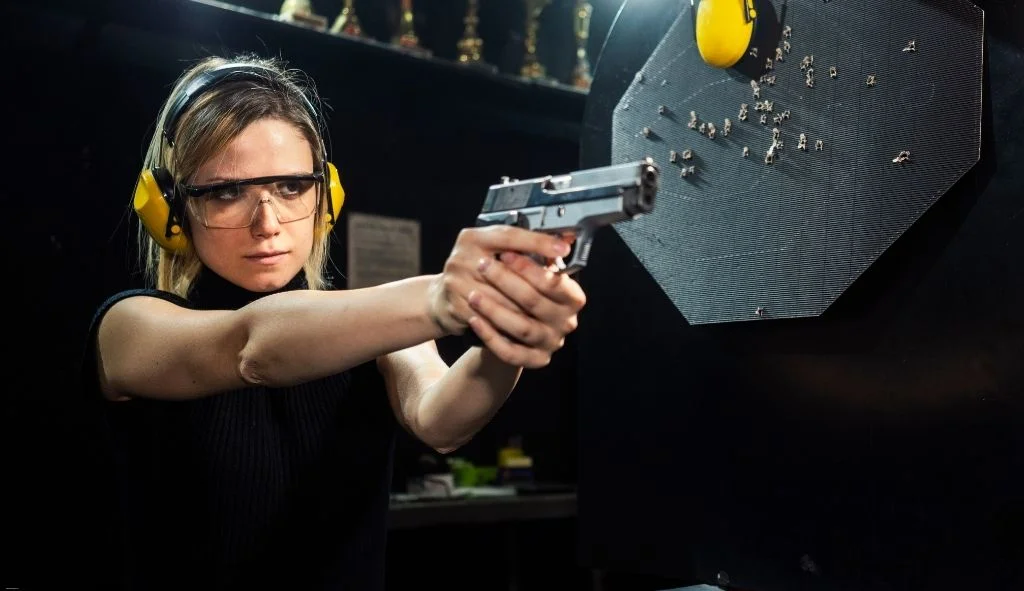
Consulting with Your Healthcare Provider
Before making any decisions about shooting while pregnant, it’s crucial to consult with your healthcare provider. They can offer personalized advice based on your specific health situation and pregnancy progress. Your doctor may recommend additional precautions or advise against shooting altogether, depending on your individual circumstances.
Legal and Professional Considerations
For competitive shooters, law enforcement officers, or those who carry firearms for self-defense, the decision to continue shooting while pregnant can be complicated by professional or legal obligations. In these cases, it’s important to:
- Consult with your employer or relevant professional organization about their policies regarding pregnant shooters
- Understand any legal implications of not maintaining firearm proficiency, especially for those in law enforcement or security professions
- Explore alternative training methods that can help maintain skills without the risks associated with live-fire training
Post-Pregnancy Considerations
Once you’ve given birth, there are still some factors to consider before returning to the shooting range:
Breastfeeding
If you’re breastfeeding, be aware that lead can be passed to the baby through breast milk. Continue to take precautions to minimize lead exposure if you choose to resume shooting while breastfeeding.
Gradual Return
After pregnancy, your body will have undergone significant changes. It’s advisable to return to shooting gradually, starting with lighter firearms and shorter sessions to allow your body to readjust.
Reassess Your Gear
You may need to reassess your shooting gear, including holsters and clothing, to accommodate post-pregnancy body changes.
